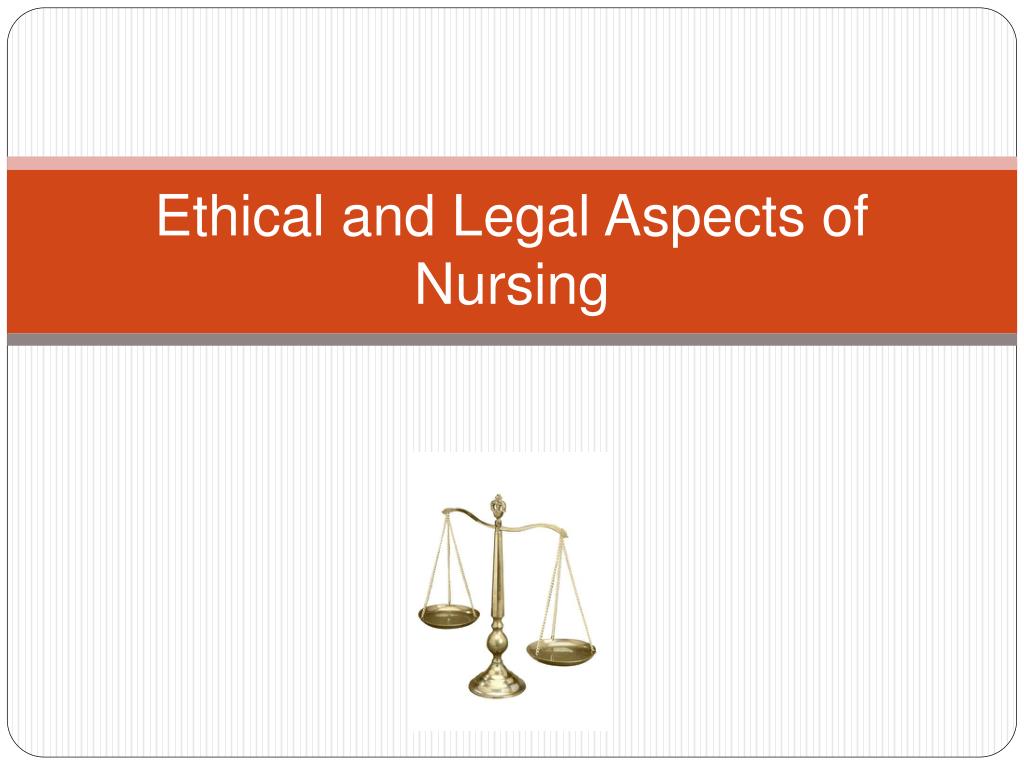Legal and Ethical Issues in Nursing

Legal and ethical issues in nursing can arise at any time, and are a necessary part of the daily practice of nursing. It is important to know the rules that govern professional behavior, so that you can avoid any violations of the law or ethics. The most important ethical consideration in nursing is the patient’s right to information about treatment options and procedures. This may include information that may conflict with your personal or religious beliefs.
Patient’s right to be fully informed about treatment options and procedures
Getting informed about treatment options and procedures is vital. The more information a patient has, the better off they are in the long run.
The process of informed consent is an excellent way to ensure that a patient is aware of potential risks and benefits of a treatment. It is the patient’s legal right to decide whether to undergo a procedure. It is also an important part of the shared decision making process.
Informed consent involves a variety of information and activities. For example, it includes a full explanation of the treatment by the physician and a discussion of the risks and benefits of the recommended treatment.
In addition, it provides the patient with the opportunity to ask questions. For example, a question such as “How will this procedure affect my quality of life?” will be answered by the doctor.
Informed consent is also a good way to improve patient safety. This is especially true in emergency situations. A clinician’s failure to adequately describe the risk of a specific treatment is an offense.
One of the most common mistakes made by clinicians is a preference misdiagnosis. A preference misdiagnosis is when a clinician thinks they know what the patient wants. They assume the patient has a certain set of values and priorities. If they cannot accurately determine the patient’s wishes, they may end up with a treatment that doesn’t meet their needs.
The most important aspect of this type of decision-making process is the active engagement of the patient. This is crucial because it enhances communication. It also provides the most effective means to ensure that the patient understands the treatment options.
Lack of documentation
Keeping records is a necessary part of any nurse’s job. However, many nurses today are facing difficulties in the documentation department. The lack of documentation can prove to be a hindrance in providing quality care to patients. Despite the many challenges, nurses still acknowledge the importance of maintaining records.
Among the many ways to improve nursing documentation, one of the simplest methods involves using computer technology. This method can improve speed and accuracy of patient care documentation.
It can also protect an employer from medical malpractice lawsuits. Proper documentation is an important element of any nurse’s training program.
It also can serve as a tool to measure the quality of nursing care. In addition, good record keeping is linked to improvements in patient care.
Some studies have identified deficiencies in the nursing documentation field. For instance, a study published in the Journal of Research in Nursing found that older hospital patients had a higher prevalence of communication problems.
The same article also showed that nursing documentation is sometimes misinterpreted. It was often seen as a ritualistic practice rather than a professional obligation. In some instances, it may have been completed to avoid an audit. This is a common problem in many public hospitals.
There are many different factors that can affect the accuracy of a document. Some of them include lack of resources, time pressures, and a hospital’s culture. Some of the biggest issues are related to the lack of training.
It is also important to note that many studies have shown that a lack of adequate documentation has a negative impact on quality of health care. This can be particularly problematic in low-income countries.
Improper staffing levels
Improper staffing levels in nursing are linked to poor patient outcomes. Research shows that understaffed hospitals have a higher rate of infections, readmissions, and mortality.
Improper staffing in nursing can also lead to a higher number of wrong site surgeries, medical errors, and even nurse burnout. As a result, the health care system faces many challenges. However, there are some strategies to improve staffing.
The first is to make sure nurses are properly prepared. The American Association of Colleges of Nursing (AACN) has created six standards for a safe work environment for nurses. A registered nurse can advocate for staffing standards by working with professional associations and unions.
The second is to implement policies for call-outs. Call-out policies should define acceptable reasons for calling nurses out of their shifts. They should also set a time limit for these calls. This can reduce the impact of short staffing on patient care.
The third is to increase the number of RNs and other staff members supporting patients. This will reduce the risk of mistakes, reduce readmissions, and reduce the costs of additional staffing.
The fourth is to establish minimum standards for nurses. This will ensure the safety of patients and the safety of the people who care for them. It will also help retain experienced nurses in the profession.
The fifth is to implement policies to reduce the risk of medical errors. This can help reduce the costs of care, improve patient satisfaction, and lower the risks of hospital-acquired pneumonia and other complications.
The sixth is to create a safe work environment for nurses. The American Nurses Association (ANA) has worked for more than two decades to improve the working conditions of nurses. They have developed a free tool that can be used by nursing professionals to assess their work environment.
Science and nursing care may contradict personal or religious beliefs
There’s a lot of buzz around booze, but what’s with nursing? The nurses who do the most damage are the ones who stick around. While you’re at it, why not get to the top of the pyramid and take a break from your harried staff? Not to mention the one who’s been bugging you about a hospital tour? If you’re like most healthcare professionals, you’re probably more worried about the next patient than the ones you’re currently taking care of. If you’re lucky, you might even make it to the front door. Or, if your phlebotomy is in top form, you might just be able to make it out of the wing.
Professional boundaries safeguard nurses and patients
Professional boundaries are a vital part of nursing. It helps to protect both nurses and patients. If professional boundaries are breached, it can cause serious consequences for both parties.
To keep the bond between the nurse and the patient strong, the nurse should not use the patient’s personal details for personal gain. A nurse should also avoid sexual misconduct.
The National Council of State Boards of Nursing has established boundaries that define acceptable professional practices. Some examples of boundary violations include offering money to a patient, thinking about a patient outside of work, and changing behavior during consultations.
A nurse should always practice in accordance with the Nurse Practice Act and other regulations. This is especially important for private duty nurses. A breach of the law can result in the loss of a PIN or disciplinary action by the employer.
Nurses can keep themselves safe by using a few simple methods. First, they must consider their own personal behaviors. Second, they should consult with other nurses or their supervisors. Third, they should seek guidance from their human resource department.
In addition, they should be familiar with the customs of different cultures. Some cultures are more conservative than others, and this can affect how they treat the patient. In other words, it can be difficult to maintain professional boundaries in this environment.
The best way to approach boundary issues is to foster a culture of preventative action. This means that the provider should be aware of their own emotional reactions to a patient and be honest about their actions.
To prevent burnout, the nurse must also keep their professional and personal lives separate. It can be difficult to set personal boundaries, but if they are maintained properly, it will keep the patient safe and secure.
Nursing ethics and legal issues assignment help
our writers are very talented in writing top notch essays. We guarantee well researched assignments, to ensure that your essay is 100% original. we avoid plagiarism because know how important it is to have essays that are original. In additional, we charge very affordable prices for all your assignments. We understand that students do not have a lot of money, and we don’t want to break your bank account by charging exorbitant like other companies. You will get value for your money when you choose us as your preferred online company.
Even with a short deadline, you will receive your essay, written in high quality. We don’t compromise on quality at any cost. Our writes deliver work on time to make sure you are able to read through the essay before submitting. We take punctuality very seriously
You will get unlimited revisions until you are fully satisfied with your work. We offer money back guarantee but before we get there, we will make sure that you receice sufficient support until you are very satisfied.

